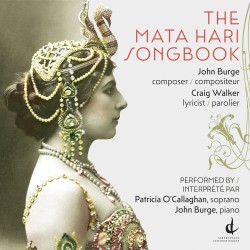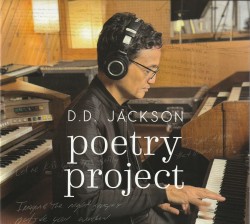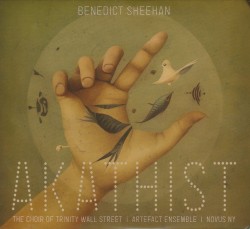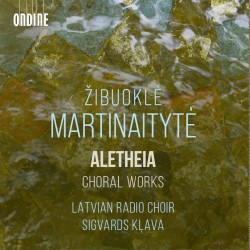John Burge: The Mata Hari songbook - Patricia O’Callahan; John Burge
 John Burge – The Mata Hari songbook
John Burge – The Mata Hari songbook
Patricia O’Callahan; John Burge
Centrediscs CMCCD 34424 (cmccanada.org/shop/cmccd-34424)
The early 20th century erotic Javanese dancer and European courtesan, Mata Hari (1876-1917) is still surrounded by an aura of mystery, more than a century since her passing at the hands of a French firing squad, following her rather dubious and hasty conviction on charges of spying for Germany during World War I. Notorious is the word irrevocably tied to this fascinating and complex character… was it her so-called traitorous activities that caused her downfall, or was it a generalized male fear of her seductive, political powers? Thrilling, versatile and accomplished soprano Patricia O’Callahan in a creative partnership with composer/pianist John Burge and writer/director Craig Walker explore these questions (and more) in their brilliant one-woman, two-act, high-end cabaret production One Last Night with Mata Hari. The recording of that presentation has resulted in the stunning ten-song collection presented here, focused on the night before Hari faced her death.
The plot sees Hari recalling her life and times for the staff and holy sisters in the place of her internment. First up is the lilting An Officer to Marry where O’Callahan deftly captures the irony of young Hari’s desire to upgrade her social situation by her assignation with the sadistic and vile Rudolph McLeod. Burge’s superb pianistic skill injects each composition with energy and verity, while the equally superb libretto by Walker paints a sometimes terrifying and complex picture of Hari’s life. Of special beauty is the love song to her sickly child, You’ll Be My Sun, where Burge and O’Callahan perform with a near telepathic communication and O’Callahan soaring to the outer reaches of her remarkable register.
Each of the compositions here contain undeniable elements of German Art Song. O’Callahan creates a three-dimensional portrait of a survivor, traumatized by her times as well as by her peripatetic and unstable reality. This is a thoroughly compelling and satisfying cycle of songs – expertly performed and recorded.






